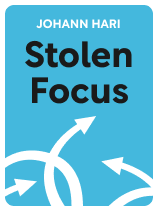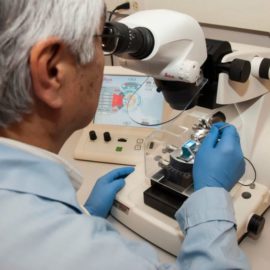

This article is an excerpt from the Shortform book guide to "Stolen Focus" by Johann Hari. Shortform has the world's best summaries and analyses of books you should be reading.
Like this article? Sign up for a free trial here .
What are systemic changes? What are examples of systemic changes that will stop the attention crisis?
Systemic changes are fundamental changes in a system (often education, government, etc.) that are necessary to make improvements. In Stolen Focus, Johann Hari suggests a systemic change to address people’s inability to focus.
Keep reading for examples of systemic changes that are necessary to reduce stress and concentration issues.
Systemic Changes
According to Hari, our model of constant economic growth drives most of the factors contributing to the attention crisis. “Success” under the economic growth model requires companies to get larger and individuals to get richer. To grow, businesses continuously find ways to sell more products, which traps consumers in a pattern of doing more and buying more each year. Hari contends that the stress of a growth-oriented society undermines our ability to focus. And because it’s a societal problem, it requires societal solutions. Below we’ll look at these examples of systemic changes.
He argues that we could shift from constant growth to a steady-state economy. In this new model, we would define success by different values, such as having job security and enough time to pursue goals outside of work. This would require changing how society functions today, including the tech business model, and work and school schedules.
(Shortform note: A transition from a model of economic growth to a steady-state economy might require a mindset shift like the one Simon Sinek advocates for in The Infinite Game. Business leaders would need to stop seeing profit generation as their sole objective. This way, the push for growth could take a back seat to goals such as the health of workers and consumers.)
Hari advocates three systemic changes examples to address stress and inability to focus:
1) Fewer work hours. Some companies have established four-day work weeks or reduced daily hours without compromising productivity. This has given workers more time to rest and participate in activities that are meaningful to them. It helps them feel less stressed and more engaged with their work. However, Hari warns that this change only benefits salaried workers.
(Shortform note: Employees aren’t the only ones who benefit from working fewer hours for the same pay. A study in Sweden found that the patients of nurses who worked six-hour shifts instead of eight-hour shifts had better outcomes, and, even though hospitals had to hire more nurses, they spent less on their workforce thanks to less rotation and burnout among their employees.)
2) More opportunities for children to play. Stress and anxiety can lead to children developing attention problems. One way for them to learn to manage negative emotions is by allowing them more time to play. Hari believes schools should offer more opportunities for students to play and pursue their own interests. They should also focus less on standardized testing. Outside of school, adults should give children time to play, be curious, and be outdoors instead of in front of screens. (Shortform note: One positive outcome of the COVID-19 pandemic is that many children started enjoying more unstructured playtime. A survey found that they spent around four more hours a week in unstructured activities.)
3) Different technology under different incentives. Some changes could make technology less disruptive. Hari proposes removing features that intentionally interfere with your attention, such as incessant notifications, and adding features to bring you back to reality, such as slowing down the download speed after you’ve spent a certain amount of time on a website. (Shortform note: The technology Hari is advocating echoes the philosophy of digital minimalism, which asks that digital tools promote your priorities and minimize their harm.)
However, Hari argues that there are no incentives for technology companies to make their products less disruptive. The only way for those incentives to shift is by banning surveillance capitalism or making it illegal to compile people’s data and use it to target their vulnerabilities. This would reform the business model that most tech companies rely on.
Likely Foes of Tech Regulation
To change the way technology works and its underlying incentive structure, reformers might have to face defenders of the status quo. In their book Merchants of Doubt, Naomi Oreskes and Erik M. Conway explain that science often reveals market failures and suggests regulation as a solution, but defenders of the free market fight against it, including:
1) Free market fundamentalists. They believe that free markets are the only economic system that allows for freedom. They are opposed to regulation, particularly international treaties.
2) Cornucopians or technophiles. They believe that technology will fix all of humanity’s problems. Cornucopianism disregards the fact that technology is not developing quickly enough to solve today’s challenges, and that it can even move us in the opposite direction.

———End of Preview———
Like what you just read? Read the rest of the world's best book summary and analysis of Johann Hari's "Stolen Focus" at Shortform .
Here's what you'll find in our full Stolen Focus summary :
- The seven factors causing the current attention crisis
- Johann Hari's three-part solution to gaining your attention back
- Why society needs to change, not just individuals






